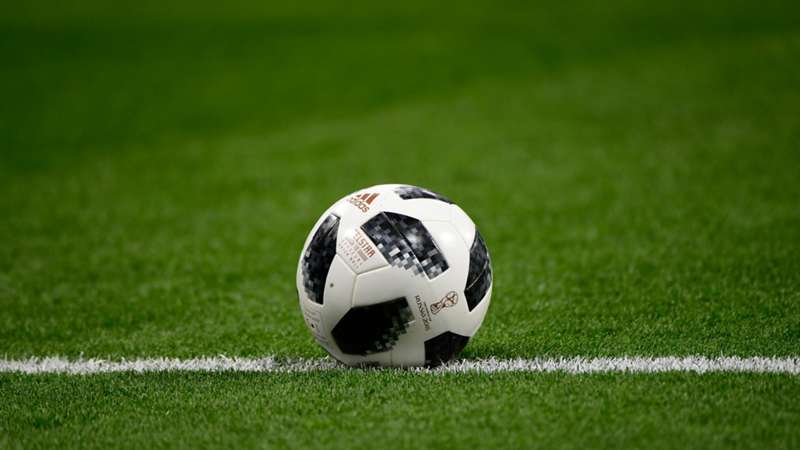Post by phocohanoi2hd on Jun 4, 2024 2:28:37 GMT -6
Tips for Playing Football on Artificial Turf During Summer
Playing football prediction next weekend on artificial turf in the summer can come with various challenges, especially due to the heat radiating from the surface. If you're like me, playing on an overly hot field can quickly make your feet uncomfortable and detract from your enjoyment of the game. This is particularly true if you're wearing the wrong kind of football boots. However, there are some tips you can follow to mitigate these issues.
A study by the Las Vegas Sun in 2009 found that artificial turf, often reaching around 122°F (50°C), is not safe for players. Depending on the air temperature, the surface temperature can soar to 180°F (82°C). This high temperature is typical for artificial turf, and if you're wearing AG (Artificial Grass) boots and experiencing pain due to the heat, it can severely impact your performance.
In addition to discussing the best football boots for artificial turf, we want to highlight some tips to help you overcome the disadvantages of playing on hot artificial surfaces.
Avoid Soaking Your Feet in Water: It might seem like a good idea to soak your feet, but this can cause problems. When your socks heat up, the water inside your shoes does too, essentially turning your shoes into hot water baths for your feet.
Change Shoes and Socks During Breaks: Instead of soaking your feet, try changing your socks during halftime or water breaks, and have a spare pair of shoes to switch into. This can make a significant difference, even if only for 5 to 10 minutes.
High-Cut Boots Are Not Suitable for Summer: When the surface is hot, it becomes challenging to keep your shoes and feet at a comfortable temperature. High-cut boots provide less ventilation, making it harder for heat to escape. Low-cut boots, on the other hand, allow for better ventilation and can keep your feet cooler.

Lightweight Shoes Mean Less Material: Avoid extremely lightweight shoes. Shoes weighing around 200 grams often have reduced material thickness, which brings your feet closer to the hot surface, exactly what you want to avoid on hot turf. Shoes designed with a bit more thickness and comfort in mind are preferable.
Consider Cooling Socks: Cooling socks might look odd, but they work well in reducing foot temperature and minimizing the impact of high surface temperatures.
Choose the Right Shoes: To minimize the negative effects of tightly fitted boots, opt for ones with good ventilation. You need shoes that allow your feet to breathe, as the heat inside the shoe can increase rapidly. Shoes with ventilated tongues can also help. The difference between the right and wrong shoe choice can be as stark as night and day.
Unfortunately, innovations in football boots often focus more on external aesthetics and the snugness of the fit rather than practical comfort for hot conditions. Consequently, there are not many ideal options on the market. In this list, we won't cover high-end, advanced technology boots, but practical choices you can consider for better comfort on artificial turf.
Playing in the football prediction octopus or aiming to perform at that level, requires a blend of skill, strategy, and mental fortitude. Here are some advanced tips to help elevate your game:
Master the Basics:
Passing: Develop accuracy and timing. Practice short passes, long balls, and one-twos to improve your versatility.
Dribbling: Enhance your close control and ability to maneuver in tight spaces. Use both feet and incorporate various dribbling techniques.
Shooting: Work on your finishing with both feet. Practice different types of shots, including volleys, chips, and power shots.
Understand Tactics:
Formation Knowledge: Familiarize yourself with different formations and their strengths and weaknesses. Understand your role within each system.
Game Reading: Develop the ability to read the game and anticipate opponents' moves. This can help you make better decisions on and off the ball.
Set Pieces: Master set-piece routines, including corners, free kicks, and throw-ins. These can be decisive in tight matches.
Improve Fitness:
Endurance: Build your stamina to maintain high performance throughout the game. Incorporate interval training and long-distance runs into your routine.
Speed and Agility: Enhance your quickness and ability to change direction. Use ladder drills, sprints, and cone exercises.
Strength: Focus on core strength, leg power, and upper body strength to withstand physical challenges and improve your overall play.
Mental Toughness:
Focus: Maintain concentration for the full 90 minutes. Work on mindfulness and meditation techniques to enhance mental clarity.
Resilience: Develop the ability to bounce back from setbacks. Learn from mistakes and stay positive.
Leadership: Cultivate leadership skills. Encourage and support teammates, and be a role model on and off the pitch.
Learn more skills you need to know in soccer such as soccer tips ht/ft
Technical Skills:
Ball Control: Perfect your first touch and control under pressure. Practice receiving the ball in various situations.
Crossing: Improve your crossing accuracy and timing. Practice hitting the ball with different parts of your foot.
Defensive Skills: Work on tackling, positioning, and marking. Understand when to apply pressure and when to hold back.